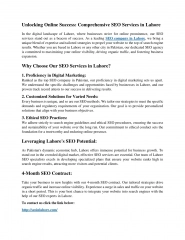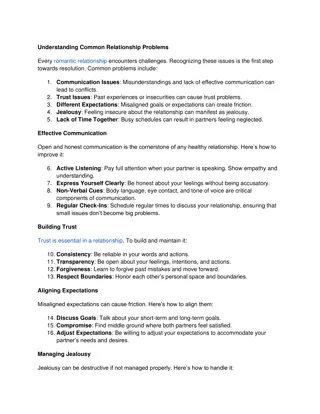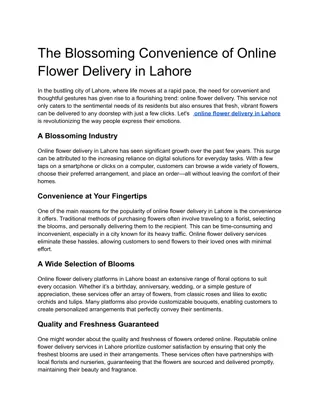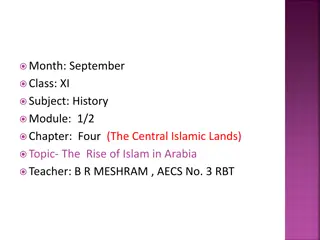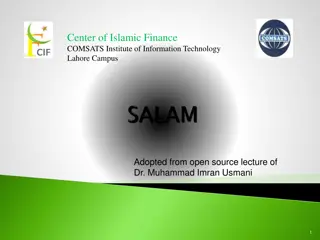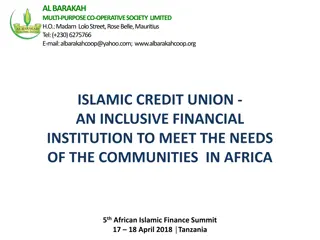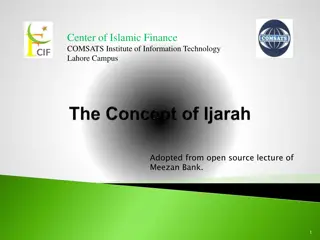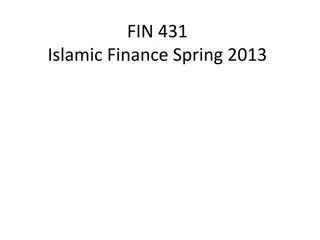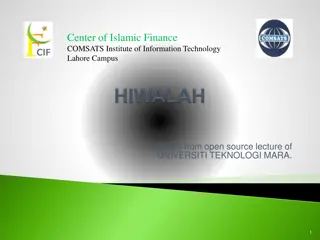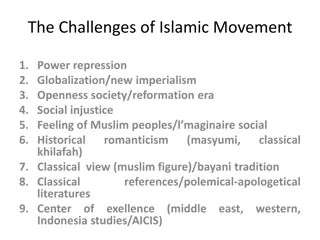Center of Islamic Finance at COMSATS Lahore
In the Center of Islamic Finance at COMSATS Institute, various concepts like Murabaha and Musawima are explored through informative images. Murabaha is a sale where cost and profit are disclosed, facilitated by the institution acting as seller. It's crucial for meeting the financial needs of clients, ensuring compliance with Shariah principles.
Download Presentation

Please find below an Image/Link to download the presentation.
The content on the website is provided AS IS for your information and personal use only. It may not be sold, licensed, or shared on other websites without obtaining consent from the author.If you encounter any issues during the download, it is possible that the publisher has removed the file from their server.
You are allowed to download the files provided on this website for personal or commercial use, subject to the condition that they are used lawfully. All files are the property of their respective owners.
The content on the website is provided AS IS for your information and personal use only. It may not be sold, licensed, or shared on other websites without obtaining consent from the author.
E N D
Presentation Transcript
Center of Islamic Finance COMSATS Institute of Information Technology Lahore Campus Adopted from open source lecture of Mufti Najeeb Khan. 1
Murabaha is a particular kind of sale where the seller discloses its cost and profit charged thereon. The price in this sale can be both on spot and deferred. 3
Murabaha is a particular kind of sale where the seller discloses its cost and profit charged thereon. Musawima is a sale on agreed price without referring to the first price on which the seller has purchased. 4
It is a contract wherein the institution, upon request by the customer, purchases a asset from the third party usually a supplier/vendor and resells the same to the customer either against immediate payment or on a deferred payment basis. 5
It is called Murabaha to the purchase orderer . It is a bunch of contracts completed in steps and ultimately suffices the financial needs of the client. The sequence of their execution is extremely important to make the transaction Shariah compliant. 6
As it is a kind of sale, there must be a seller and buyer and some thing that is bought and sold. The institution is the seller and the client is buyer. It cannot be used as a substitute for running finance facility, which provides cash for fulfilling various needs of the client. 7
It is a fixed price sale and normally is done for short term. The transaction can be used in order to meet the working capital requirements however it cannot be used to meet liquidity requirements. 8
Step by Step Murabaha Step by Step Murabaha 9
Stage One (a) for Murabaha financing. Client approach the bank for facility through Murabaha. Client Bank Facility approved 10
Stage One (b) for Murabaha financing. Client and bank sign an agreement to enter into Murabaha. Client Bank Murabaha Facility Agreement MOU 11
Stage One (c) for Murabaha financing. Client submit the purchase requisition to the bank. Client Bank purchase requisition /Promise the purchase requisition /Promise the bank to to bank. . 12
Stage Two (a) for Murabaha financing. Client appointed as agent to purchase goods on bank s behalf Bank Client Agreement to Murabaha Agency Agreement 13
Stage Two (b) for Murabaha financing. Bank gives money to supplier through client s account for purchase of goods. Bank Client Agreement to Murabaha Islamic Bank Agency Agreement Disbursement to the Supplier 14
Stage three for Murabaha financing. Client purchases goods on bank s behalf and takes their possession. Client purchases goods and takes possession Vendor Transfer of Risk Client Banck 15
Stage four (a) for Murabaha financing. Client makes an offer to purchase the goods from bank. Client Bank Offer to purchase 16
Stage four (b) for Murabaha financing. Bank accepts the offer and sale is concluded. Murabaha Agreement + Transfer of Title Bank Client 17
Stage four (b) for Murabaha financing. Client pays agreed price to bank according to an agreed schedule. Usually on a deferred payment basis (Bai Muajjal). Bank Client Payment of Price 18
VENO TransferofTitle TransferofTitle ISLAMIC BANK VENDOR CUSTOMER Agreement Payment of Purchase Price Payment of Purchase Price 19
The customer approaches the Bank with the request for financing. The Bank purchases and receives title of ownership from the vendor. The Bank makes payment to the vendor. The Bank transfers the title over to the customer upon payment. The customer makes payment up-front or on a deferred basis. 20
Rescheduling is allowed but repricing is not allowed. Rollover is also not allowed. 21
Credit Credit Risk Dimensions Liquidity Liquidity Credit Credit Prising risk Prising risk Banking Risks Banking Risks Market Market Islamic Banks also face Foreign Exchange Foreign Exchange -Additional asset risk -Greater fiduciary risks Solvency Solvency -Greater legal risk Operational Operational 23
THANK YOU 24


